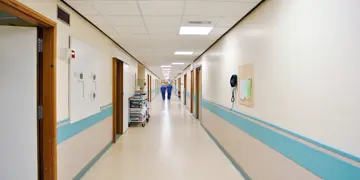Rehabilitating a nation
Rehabilitating a nation
An IPPR report finds the UK’s health is in poor condition but can the Labour Government’s plan make it well again?
The UK is once again the ‘sick man of Europe’. However, this time in perhaps the most literal sense of that expression.
It was precisely this term that was employed by the IPPR’s (Institute for Public Policy Research) cross-party commission on health and prosperity, which this month published the findings of its three-year inquiry examining the link between health and the economy.
Overseen by England’s former chief medical officer Dame Sally Davies and Lord Ara Darzi, a surgeon and former health minister under Gordon Brown who has also recently reviewed the NHS, the report reveals an unsparing and shocking assessment of the state of the UK’s health. It says stagnating life expectancy, rising rates of chronic illness and ever-widening regional health inequalities have had a crippling effect on society and the nation’s finances.
Indeed, the economic effects of poor health cannot be understated, with the IPPR warning 900,000 people were missing from work owing to illness as of the end of last year, with this figure potentially rising to four million by the end of this Parliament on current trends.
Unsurprisingly, the report lays responsibility for this malaise, and the decimation of the NHS, squarely at the door of the policy decisions of past governments namely the Coalition’s 2012 Health and Social Care Act. This and a decade of fiscal austerity, with the pandemic delivering the coup de grâce.
Dismal as they are, the report may come as a relief to many, exemplifying how the grim reality of what has happened to health and the NHS is starting to be acknowledged or, as BMA council chair Philip Banfield put it in response to Lord Darzi’s review, ‘Finally, someone understands’.
For its part the association has spent years warning how an underfunded health service was exacerbating health inequalities and quite literally making the country sicker, while calling for those in power to protect and invest in public services and to implement policies aimed at promoting better health.
The IPPR’s prescription for reversing current trends is nothing less than an inversion of the dogma put forward by governments during the years of austerity; that to have a strong NHS, one needed to prioritise a strong economy.
It calls for a fundamental shift in the healthcare model from a ‘reactive, sickness orientated 20th century healthcare system into a proactive 21st century health creation system’, something it believes can be achieved through a raft of preventive measures.
These include the raising of £10bn in funds from increased taxation of ‘health polluters’ such as tobacco, alcohol and unhealthy foods industries to the formation of ‘health and prosperity improvement zones’ and one-stop-shop neighbourhood health centres.
The move towards a community-centred preventive approach to restoring the nation’s health is one health secretary Wes Streeting appears to have embraced, even if the precise details as to how this will be achieved and what it will look like are yet to be forthcoming.
Speaking at the Labour Party conference in Liverpool, Mr Streeting described the NHS as ‘broken but not beaten’, qualifying this by emphasising that without reform, the health service in its current form would not survive.
He said his vision, and the Government’s 10-year-plan for the NHS, was that of ‘a decade of national renewal’, on in which the NHS would metamorphize into a ‘neighbourhood health service’ a ‘digital health service powered by cutting edge technology’ and ‘a preventive health service that helps us stay healthy and out of hospital’.
Doing so he said would not only ultimately improve the health and lives of individuals but boost growth by getting ‘sick Brits back to health and back to work’.
Given the financial constraints facing the Government and the ‘tough decisions’ that are likely to feature in next month’s budget, it remains to be seen how much of the IPPR’s recommendations for tackling poor health will be realised.
Equally, efforts to tackle health inequalities and transform the health service will have to be balanced against other needs facing the NHS including addressing deficits in staffing and infrastructure.
While there is consensus on the UK’s diagnosis as Europe’s ‘sick man’, determining the most suitable course of treatment remains subject to debate.
Tim Tonkin is staff writer for The Doctor



